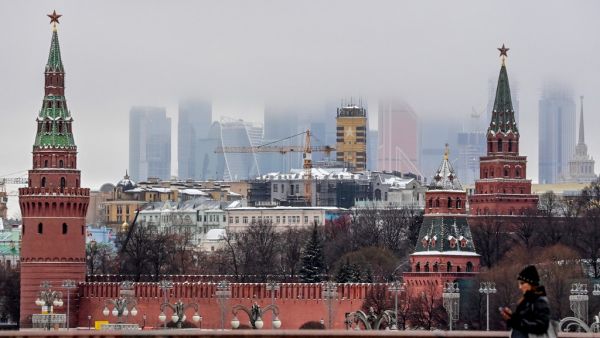Russia has expanded its list of European Union officials barred from the country in response to what it described as “unacceptable” sanctions against Moscow over the poisoning of Kremlin critic Alexey Navalny.
Russia's Foreign Ministry did not name the officials, but called in senior diplomats from the German, Swedish and French embassies to notify them of the move following EU sanctions imposed in mid-October, the TASS news agency reported.
The foreign ministry said that in response to "confrontational" EU actions, it had "decided to expand the list of representatives of EU member states and institutions who will be denied entry to the Russian Federation".
Kremlin mocks Navalny over underwear poisoning account https://t.co/5JCs1UeJ78 pic.twitter.com/RPyjul4A6j
— The Hill (@thehill) December 23, 2020
"...we will continue to respond appropriately to unfriendly actions by western countries," the ministry said in a statement on its website.
The EU and Britain imposed sanctions on six Russians and a state scientific research centre accused of deploying a banned nerve agent designed for military use against Navalny, a leading critic of President Vladimir Putin.
Navalny dupes FSB agent
The new sanctions came a day after Navalny said he had tricked a Russian agent into admitting the Federal Security Service (FSB) tried to kill him by placing poison inside his underwear.
The FSB late Monday described evidence in Navalny's claims as "fake" and said he was aided by foreign intelligence services.
The Kremlin calls the (49min!!) tape of @navalny with an FSB assassin a “fake”, yet they are so quick to pass a new law making it illegal to reveal the personal data of security service members. ? https://t.co/vx2FrAqmpA
— Bianna Golodryga (@biannagolodryga) December 22, 2020
Navalny, 44, fell violently ill during a flight from Siberia to Moscow in August and was hospitalised in the city of Omsk before being transported to Berlin by medical aircraft.
Germany has said he was poisoned with a Soviet-style Novichok nerve agent in an attempt to murder him, an assertion many Western nations accept.
In a statement earlier this week, the Russian Foreign Ministry repeated claims that EU countries had refused to cooperate with Russia over a probe into the incident.
Moscow has repeatedly denied allegations its security services played a role in the incident.
This article has been adapted from its original source.








